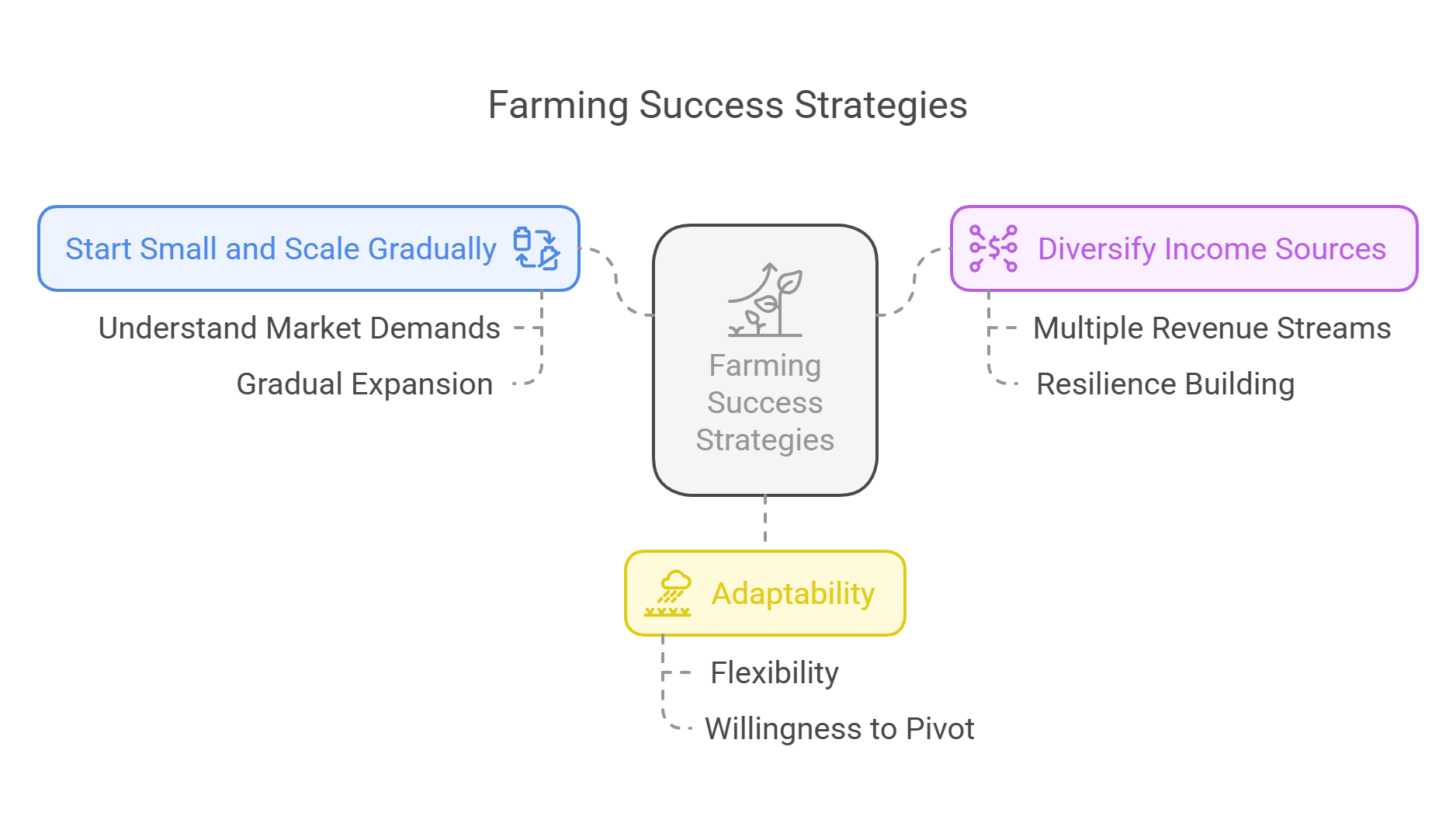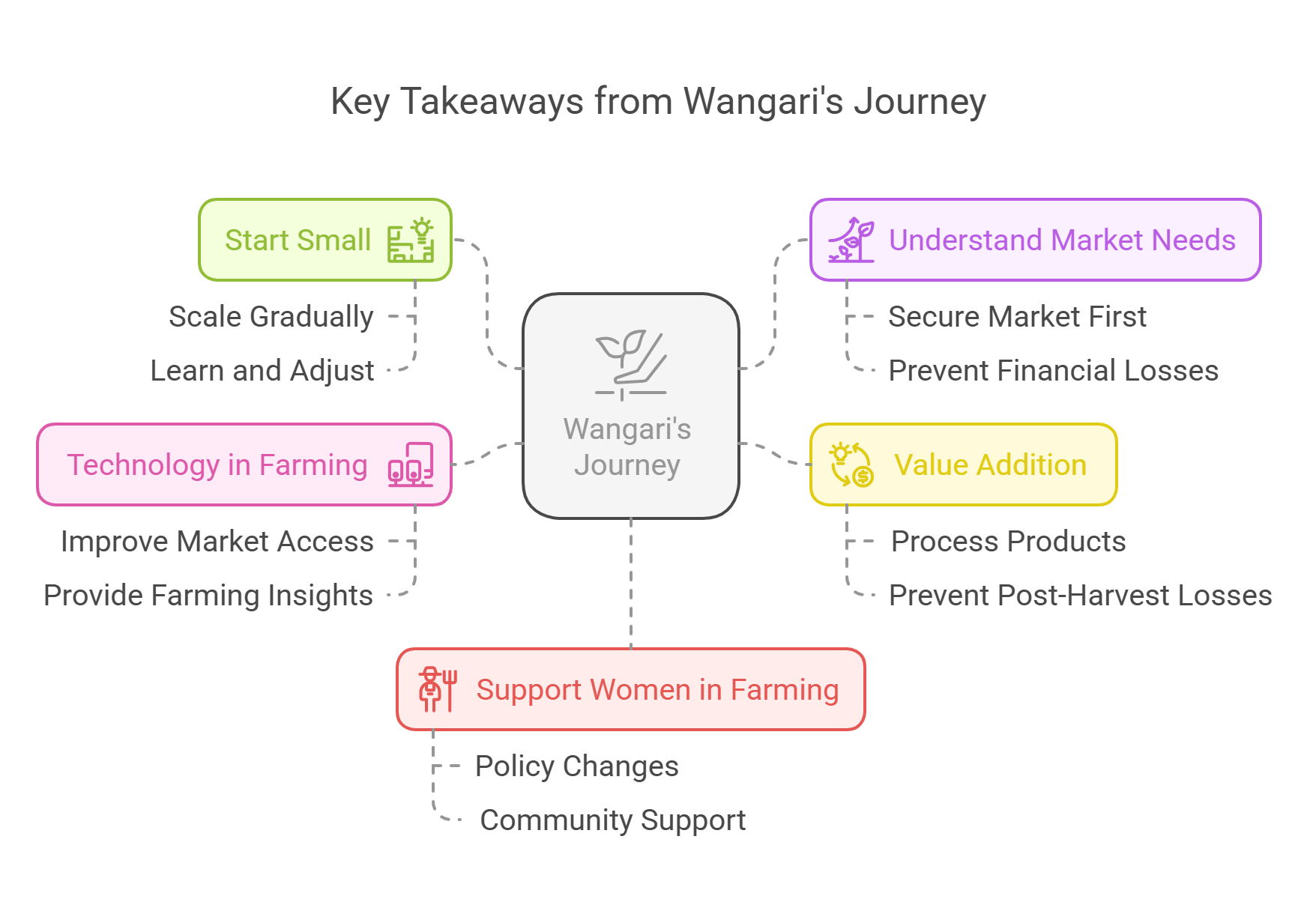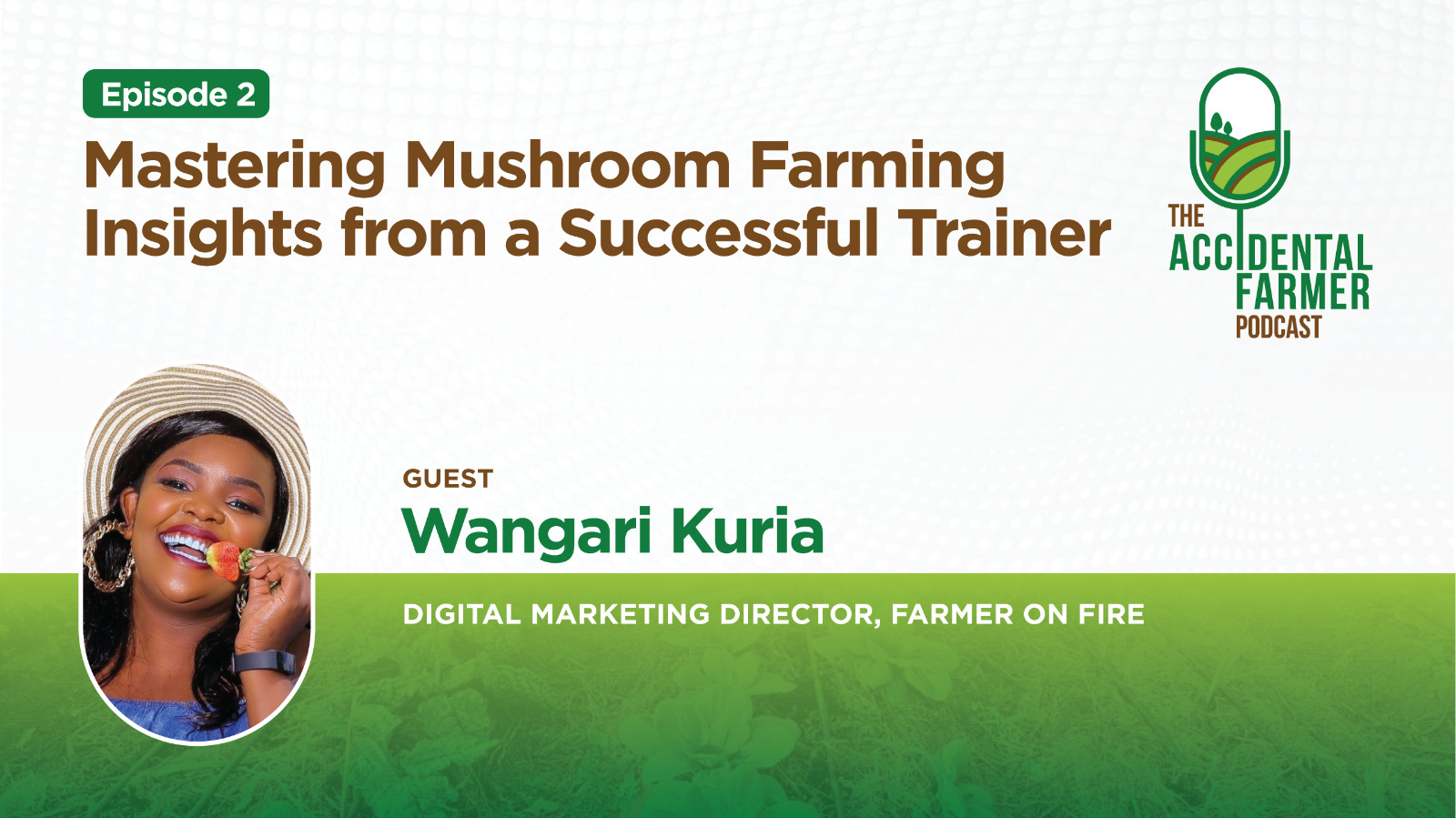Welcome to another edition of The Accidental Farmer Newsletter, where we explore inspiring journeys in agriculture. This edition features Wangari Kuria, a trailblazing farmer, entrepreneur, and advocate for sustainable agriculture and women in agribusiness. Known as the “Farmer on Fire,” Wangari shares her unconventional path into farming, her lessons from failures, her innovative farming techniques, and her vision for transforming African agriculture.
From Corporate to Agriculture: An Unexpected Journey
Wangari’s journey into farming was not planned. She was raised in a rural village, but her parents encouraged her to pursue higher education and a corporate career. She succeeded, earning a degree and working in real estate and project management for seven years in senior management positions. However, an economic downturn forced her to rethink her path.
She initially saw farming as a side project, something to supplement her income. Despite skepticism from the local Maasai community in Kitengela, who believed the land was only suitable for livestock, she identified an opportunity—urban consumers needed fresh, locally grown produce. This realization transformed her small kitchen garden into a thriving agribusiness.
Farming Challenges & Lessons Learned Despite her success, Wangari emphasizes that farming is not easy. She highlights several challenges that farmers face:
• Land Access & Ownership – Many farmers work on borrowed land, making long-term planning difficult. • Financial Barriers – Banks often classify farming as “high risk,” making it difficult to secure loans. • Market Access – Many farmers produce crops without first securing buyers, leading to post-harvest losses. • Climate Change – Unpredictable weather patterns, droughts, and floods affect production.
Lessons learned:

• Start small and scale gradually. Many new farmers make the mistake of investing in large-scale production without understanding market demands. • Diversify income sources to reduce risk. Having multiple streams of revenue in agriculture can make a farm more resilient. • Adaptability is key. Being flexible and willing to pivot when faced with challenges is crucial for success in farming.
The Shift to Mushroom Farming & Value Addition Faced with space constraints, Wangari transitioned to mushroom farming, which requires minimal land. She attended training sessions to understand its cultivation and business potential. She also focused on value addition to maximize profitability, including: • Producing mushroom-based flour for porridge • Creating dried mushrooms for longer shelf life • Developing mushroom-based spices for cooking
Mushrooms have a high market demand due to their nutritional benefits, including being a rich source of protein, antioxidants, and micronutrients. She also advocates for them as a sustainable crop, as they require little water and can be grown indoors, making them ideal for areas affected by climate change.
Utilizing Underutilized Resources Wangari has been innovative in using resources that are often discarded, helping to reduce waste while increasing productivity. • Avocado peels and overripe avocados – Used to feed black soldier fly larvae, which are a high-protein alternative to animal feed. • Water hyacinth – A fast-growing invasive plant that can be turned into nutritious livestock feed. • Organic waste – Converted into compost for farming or used as a substrate for mushroom production. Her approach promotes sustainable farming while lowering production costs.
Advocating for Women in Agriculture Wangari is a strong advocate for gender equality in agribusiness, highlighting the systemic barriers women face: • Women often lack formal land ownership, limiting their ability to access bank loans. • Agricultural policies rarely consider the unique challenges female farmers face. • Women are significant contributors to food security but receive less support compared to male farmers. Her mission is to amplify women’s voices in agriculture, ensuring they have the resources and support needed to thrive. She organizes training programs to help women develop business strategies in farming, access funding, and implement modern agricultural techniques.
Recommended Books & Learning Resources Beyond farming, Wangari believes in continuous learning and self-improvement. She recommends books and online content that focus on business growth, agriculture, and social impact.
• Diary of a CEO by Steven Bartlett – A book on personal development, entrepreneurship, and social media marketing. • Various books on agricultural innovation, food security, and business strategy.
She also encourages farmers to: • Follow industry leaders on social media for insights. • Join agricultural networks and forums for knowledge-sharing. • Attend training programs to stay updated on emerging farming techniques.
Global Recognition & Expanding Sustainable Farming Wangari’s contributions to agriculture have been recognized internationally. She has received: • 40 Under 40 Africa Award for her impact in agribusiness. • Global Citizen Prize for her efforts in food security and women’s empowerment.
She has also spoken at various global forums about climate-smart agriculture and commercial food security.
Her next steps include: • Expanding mushroom farming across Kenya and Africa. • Introducing mushroom porridge in public school feeding programs. • Scaling training programs to empower more farmers with knowledge on agribusiness and value addition.

Key Takeaways from Wangari’s Journey • Start small and scale gradually – Many farmers struggle due to unrealistic expectations. Testing in a small area allows for learning and adjustment before making large investments. • Understand market needs before planting – Growing crops without a secured market leads to financial losses. Research demand first. • Value addition increases profitability – Processing agricultural products prevents post-harvest losses and creates higher-value goods. • Technology can transform farming – Digital platforms can improve market access, provide farming insights, and connect farmers with buyers. • Support women in farming – Women play a crucial role in food production but face more challenges in land access, financing, and training. Policy changes and community support can help bridge this gap.
How to Get Involved Wangari Kuria is on a mission to transform agriculture and create sustainable food systems. You can support her work by: • Joining her farming community – Learn from experts and connect with like-minded farmers. • Sharing her story – Raising awareness about sustainable farming practices can create a ripple effect. • Collaborating on agribusiness initiatives – Investors, organizations, and researchers can partner with her to scale innovative agricultural solutions.
Farming is more than just growing food—it’s about creating jobs, protecting the environment, and ensuring food security for future generations.
Wangari Kuria’s journey proves that farming is not just about planting crops; it’s about solving real-world problems, creating sustainable solutions, and empowering communities. Whether through mushroom farming, waste utilization, or value addition, she is demonstrating that innovation in agriculture can drive economic growth and food security.
We hope this story inspires you to think about agriculture differently—not as a last resort but as an industry filled with opportunities for growth, sustainability, and impact.
